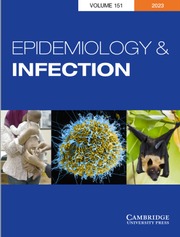Article contents
The Influence of Temperature, and some other Physical Conditions, on Calf Vaccine
Published online by Cambridge University Press: 15 May 2009
Extract
1. Temperature influences the rate at which glycerinated lymph deteriorates in accordance with the law of Arrhenius, expressing the effect of temperature upon chemical action; the rate of deterioration increasing three times per 10° rise in temperature.
2. Dry powdered calf vaccine in sealed glass capillary tubes still gave rise to typical vesicles after exposure to a temperature of 100°C. for from 5 to 10 minutes.
3. The vaccine virus can withstand positive osmosis for 24 hours or more, and negative osmosis for 8 weeks or more, at room temperature.
4. It appears doubtful whether the vaccine virus will pass through a Berkefeld V filter even when a stored vaccine emulsion is used for filtration. If any virus does pass through it only does so exceptionally and in small quantities.
5. When a glycerinated vaccine emulsion is filtered, white flocculi frequently form in the filtrate. These are at first minute, but subsequently adhere and form a macroscopic sediment. This sediment, when inoculated on calves, does not cause vesiculation.
Microscopically these flocculi, in hanging drop preparations, resemble the vaccine bodies described by one or more observers.
- Type
- Research Article
- Information
- Copyright
- Copyright © Cambridge University Press 1908
References
- 2
- Cited by


